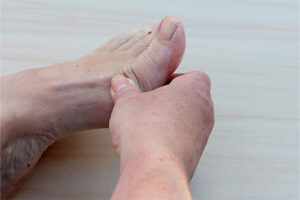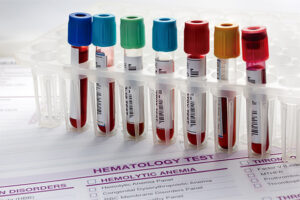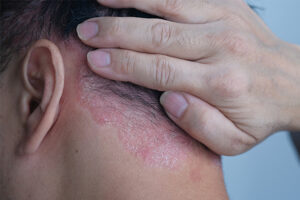Dermatology
Plaque Psoriasis
Health-Related Quality of Life in Patients With Plaque Psoriasis
Because plaque psoriasis is a chronic disease involving the skin, it can have a profound effect on a patient’s quality of life (QOL). Recent treatment advances in plaque psoriasis have improved patient outcomes and, in turn, have resulted in a better QOL for those living with the disease. A presentation at the Maui Derm Hawaii 2024 conference explored real-world QOL outcomes in patients with plaque psoriasis.
Following this presentation, featured expert Steven R. Feldman, MD, PhD, was interviewed by Conference Reporter Medical Writer Rick Davis. Dr Feldman’s clinical perspectives on this topic are presented here.
When I first started treating patients with psoriasis, we did not have all the therapeutic options that we have now. Despite our best efforts, patients were often still suffering. One of the most important things that we could do at that time was address their psychosocial needs. I worked with a physician assistant early in my career, and she had much closer contact with the patients than I did. She started a psoriasis support group for our patients because, even with our best treatments, they were still not always getting well. This changed my career path. We enlisted a psychologist who became very interested in psoriasis research, and we started to study the health-related QOL (HRQOL) of this patient population.
In those earlier days, introducing patients to the National Psoriasis Foundation (NPF) was one of the most effective ways to improve their HRQOL. Through the NPF, they could learn about all their treatment options and be exposed to different ways of handling social challenges that can occur while living with psoriasis. Patients learned that they were not alone in dealing with these challenges.
The management of plaque psoriasis has changed dramatically over the years. One revolutionary drug after another has become available, and many patients can now achieve complete disease clearance. When there is minimal visible disease left, the social aspects of plaque psoriasis are less challenging. Therefore, there is often far less need for complementary support to address social concerns.
I do not use formal HRQOL measures in the clinic. If a patient’s symptoms have cleared up and they are happy, that is good enough for me. If they are almost completely clear and they tell me that they are “doing great” after I ask them how they are doing, I do not need a formal measure of their QOL to know that I do not need to change their treatment. Now if they say, “I’m doing better, but I’m not happy,” then it might be time for a deeper discussion and a consideration of a change in their treatment. I do not need to utilize the formal Dermatology Life Quality Index (DLQI) to measure that. Today, measures such as the DLQI are used more in research settings when standardizing patient-reported outcomes.
When discussing the impact of psoriasis on QOL for an individual patient, it is important to remember that the location of their lesions can have a huge impact on HRQOL. For example, a partner of mine had a patient with nail psoriasis who worked in sales, and this patient felt like he could not shake people’s hands due to his nail psoriasis. It was totally disabling for him, and he was willing to risk methotrexate toxicity due to the enormous impact that the nail psoriasis was having on his QOL. Psoriasis lesions on the face, scalp, or genitals can also be socially disabling for an individual patient. So, despite treatment advances, psoriasis can still have a big impact on patients’ lives.
At Maui Derm Hawaii 2024, Strober et al presented a poster on the real-world achievement of skin clearance targets and HRQOL with risankizumab. What was most notable to me about this study was that the reported efficacy rates for risankizumab in clinical practice seemed even higher than those reported in clinical trials. Patients usually do better in clinical trials than they do in the real-world setting because of the controlled nature of the studies. But in this study, the real-life data were at least as good as what we saw in the clinical trials, and that is just fabulous news for patients.
Gordon KB, Strober B, Lebwohl M, et al. Efficacy and safety of risankizumab in moderate-to-severe plaque psoriasis (UltIMMa-1 and UltIMMa-2): results from two double-blind, randomised, placebo-controlled and ustekinumab-controlled phase 3 trials. Lancet. 2018;392(10148):650-661. doi:10.1016/S0140-6736(18)31713-6
Sbidian E, Chaimani A, Guelimi R, et al. Systemic pharmacological treatments for chronic plaque psoriasis: a network meta-analysis. Cochrane Database Syst Rev. 2023;7(7):CD011535. doi:10.1002/14651858.CD011535.pub6
Strober B, Patel M, Photowala H, et al. Real-world achievement of skin clearance targets and improved quality of life with risankizumab in patients with moderate psoriasis: 1-year results from the CorEvitas Psoriasis Registry. Poster presented at: Maui Derm Hawaii 2024; January 22-26, 2024; Wailea, HI.
This information is brought to you by Engage Health Media and is not sponsored, endorsed, or accredited by Maui Derm Hawaii 2024.











